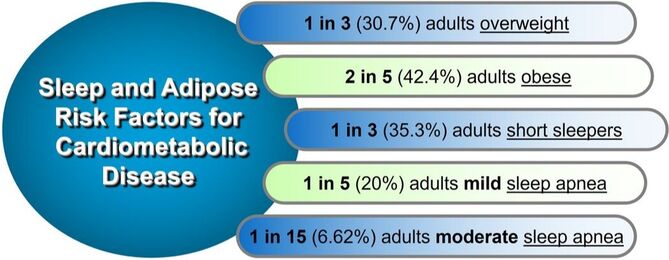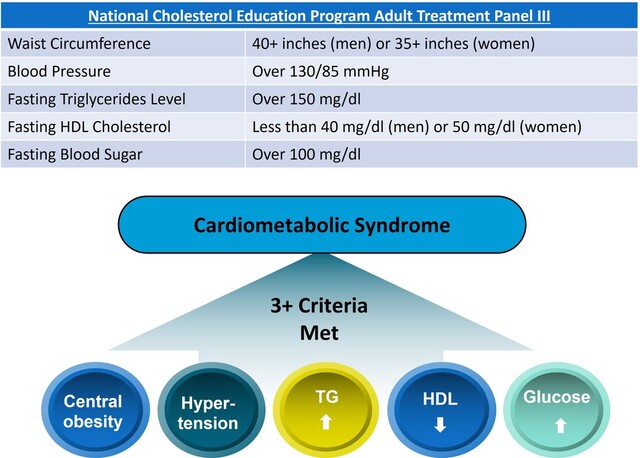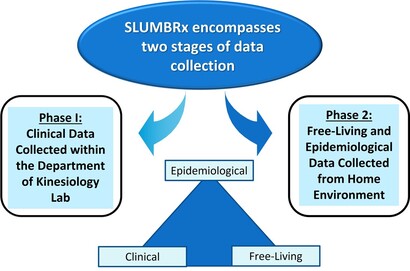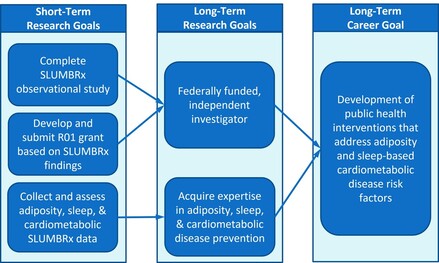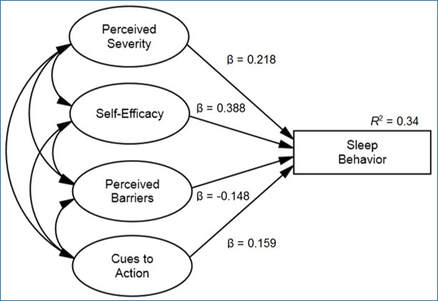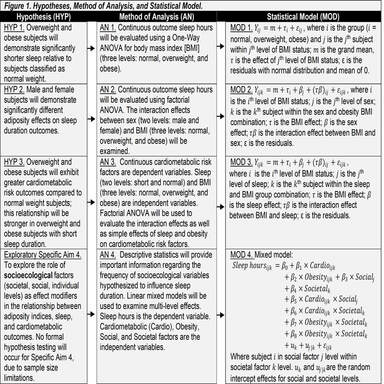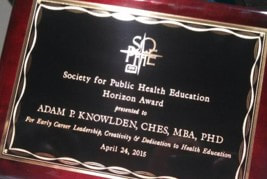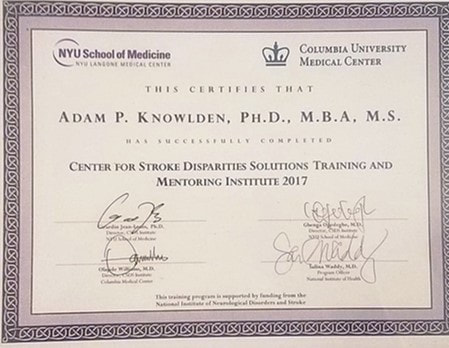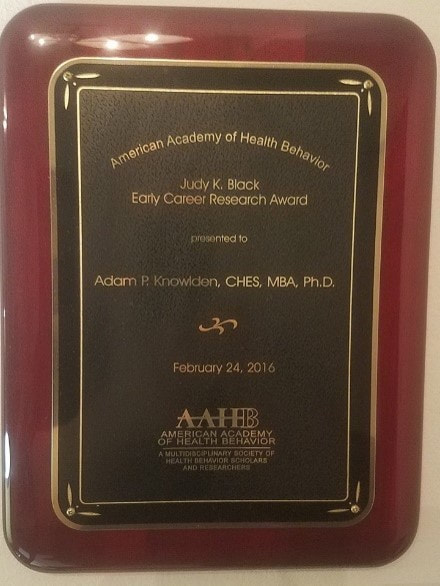–Research Statement & Philosophy–
Adam P. Knowlden, MBA, MS, Ph.D.
Your browser does not support viewing this document. Click here to download the document.
| research_statement_and_philosophy_-_adam_p._knowlden__december_2023_.pdf | |
| File Size: | 93 kb |
| File Type: | |
Research Vision
I am interested in expanding my current program of research focused on operationalizing a theoretical adipose-sleep model. Obesity and disordered sleep are highly prevalent, interconnected risk factors for cardiometabolic disease; however, a comprehensive framework merging these health concerns remains elusive.
I am interested in expanding my current program of research focused on operationalizing a theoretical adipose-sleep model. Obesity and disordered sleep are highly prevalent, interconnected risk factors for cardiometabolic disease; however, a comprehensive framework merging these health concerns remains elusive.
I began studying the confluence between body composition and sleep as a graduate student at the University of Cincinnati. This was expanded upon when, as a faculty member at the University of Alabama, I conducted a range of scientific studies elucidating epidemiological associations between sleep indices and obesity outcomes. These early empirical undertakings shaped my current research agenda investigating sleep and adipose-associated cardiometabolic disease risk factors.
National Cholesterol Education Program Adult Treatment Panel III Cardiometabolic Syndrome Clinical Diagnostic Criteria.
Given this backdrop, my short-term career goal is to become proficient in the collection and assessment of adiposity, sleep, and cardiometabolic data. Within this context, I am particularly interested in advancing the triangulation of epidemiological, clinical, and ambulatory data collection methods to provide a more complete data milieu. My long-term career goals include: (1) to become a federally funded, independent investigator; and (2) to become an expert in adiposity, sleep, and cardiometabolic disease prevention. My long-term research goal is to cultivate a stream of research leading to the development of evidence-based, public health, health promotion, and health education interventions that address the pathogenesis, pathophysiology, and prevention of adiposity and sleep-associated cardiometabolic disease risk factors. The body of knowledge I am seeking to generate will form the background of new lines of epidemiological and experimental inquiry that will unpack the relationship between these interconnected phenomena.
Scientific Training
As a first-generation college student, my academic journey began with dual Baccalaureate of Science degrees in Business Administration and Marketing, followed by a Master of Business Administration from Franklin University. My exposure to public health policy during my time with the Columbus City Council (Ohio) sparked my transition to a career in public health education. Exposure to public health policy during my time with the city council, coupled with my graduate education, led me to modify my professional trajectory towards an academic career in public health education. To accomplish this goal, I completed my Master of Science (M.S.) degree from the University of Cincinnati in 2011, focusing my thesis on modeling theoretical correlates of sleep behavior. During the course of my graduate training, I acquired certification as a health education specialist (C.H.E.S.), which I have maintained since 2010.
As a first-generation college student, my academic journey began with dual Baccalaureate of Science degrees in Business Administration and Marketing, followed by a Master of Business Administration from Franklin University. My exposure to public health policy during my time with the Columbus City Council (Ohio) sparked my transition to a career in public health education. Exposure to public health policy during my time with the city council, coupled with my graduate education, led me to modify my professional trajectory towards an academic career in public health education. To accomplish this goal, I completed my Master of Science (M.S.) degree from the University of Cincinnati in 2011, focusing my thesis on modeling theoretical correlates of sleep behavior. During the course of my graduate training, I acquired certification as a health education specialist (C.H.E.S.), which I have maintained since 2010.
Health belief structural equation model predicting sleep behavior (Knowlden et al., 2014).
In 2013, I earned my Doctor of Philosophy (Ph.D.) degree from the University of Cincinnati, basing my dissertation on the development, implementation, and evaluation of a novel, family-and-home-based childhood obesity prevention intervention, dubbed EMPOWER (Enabling Mothers to Prevent Pediatric Obesity through Web-Based Education and Reciprocal Determinism). Etiologically, the family-home ecology is perhaps the most influential, psychosocial milieu of childhood obesity; yet, one of the most understudied from a public health intervention perspective. I designed the EMPOWER randomized control trial to begin bridging knowledge gaps I identified after conducting a systematic review of childhood obesity prevention programs delivered in the family-home environment. As part of my dissemination efforts, I published the EMPOWER trial's methods, process evaluation findings, as well as one-month, one-year, and two-year intervention findings.
In 2017, I completed New York University's, National Institutes of Health-funded, two-year, Institute in Behavioral Medicine and Sleep Disorders Research Training and Mentoring program, which led to the establishment of a team of mentors dedicated to supporting me as I progress towards research independence.
In 2017, I completed New York University's, National Institutes of Health-funded, two-year, Institute in Behavioral Medicine and Sleep Disorders Research Training and Mentoring program, which led to the establishment of a team of mentors dedicated to supporting me as I progress towards research independence.
EMPOWER intervention findings published in Health Education & Behavior.
My current scholarship integrates my portfolio of obesity and sleep research into a convergent line of inquiry. This undertaking has led to peer-reviewed journal publications and book chapters, conference presentations, as well as both internally and externally funded grants. In 2019, I was awarded a National Institutes of Health K01 mentored research grant (1K01HL145128) through the National Heart, Lung, and Blood Institute to launch the SLUMBRx (Short Sleep Undermines Cardiometabolic Health) observational study, upon which I based my National Institutes of Health Student Loan Repayment Program award (L30HL159690).
In conjunction with my mentorship team, I designed the SLUMBRx study to address four research questions pertinent to the adiposity-sleep hypothesis: relative to normal weight participants, do overweight and obese SLUMBRx study participants exhibit (1) shorter sleep duration; (2) sex-based differences in adipose and sleep duration outcomes; (3) greater cardiometabolic risk mediated by sleep duration; and (4) variations in socioecological effect modifiers?
In conjunction with my mentorship team, I designed the SLUMBRx study to address four research questions pertinent to the adiposity-sleep hypothesis: relative to normal weight participants, do overweight and obese SLUMBRx study participants exhibit (1) shorter sleep duration; (2) sex-based differences in adipose and sleep duration outcomes; (3) greater cardiometabolic risk mediated by sleep duration; and (4) variations in socioecological effect modifiers?
|
SLUMBRx study hypotheses, methods of analysis, and statistical models.
Throughout my academic career I have maintained a track-record of funding to support my research initiatives. From 2016 to 2019, I served as the principal investigator on a pilot study testing social-ecological correlates of obesity and sleep duration, funded by the University of Alabama Research Grants Committee. As well, from 2016 to 2017, I functioned as the principal investigator on a project to specify a social cognitive theory-based model predicting obesity prevention behaviors in overweight and obese men, funded by the University of Alabama Crenshaw Endowed Research Award. My doctoral dissertation was also funded through a highly competitive research fellowship awarded by the University of Cincinnati Graduate School in 2012.
As both a graduate student and early career academic, I received multiple awards for my research including the 2020 Society for Public Health Education Presidential Citation for Research, 2017 Human Environmental Sciences Leadership Board Excellence in Scholarship & Research Award, 2016 American Academy of Health Behavior Judy K. Early Career Research Award, 2015 Society for Public Health Education Horizon Award, and the 2012 University of Cincinnati Graduate Student Award for Exemplary Scholarship in the Behavioral Sciences. These accolades support my dedication to pursuing my research vision. My productivity in disseminating my findings, as well as my experience as a principal investigator on grant-funded projects, underscores my dedication and commitment to scholarship and provides evidence of my potential to become an independent and productive federally funded research scientist.
As both a graduate student and early career academic, I received multiple awards for my research including the 2020 Society for Public Health Education Presidential Citation for Research, 2017 Human Environmental Sciences Leadership Board Excellence in Scholarship & Research Award, 2016 American Academy of Health Behavior Judy K. Early Career Research Award, 2015 Society for Public Health Education Horizon Award, and the 2012 University of Cincinnati Graduate Student Award for Exemplary Scholarship in the Behavioral Sciences. These accolades support my dedication to pursuing my research vision. My productivity in disseminating my findings, as well as my experience as a principal investigator on grant-funded projects, underscores my dedication and commitment to scholarship and provides evidence of my potential to become an independent and productive federally funded research scientist.
Mentoring Perspectives
Reflecting upon my research tenure, I have come to recognize that I have only succeeded in my present pursuits as a result of the support and guidance of my mentors and colleagues. Subsequently, I view collaboration for the advancement of science in a manner reflective of Sir Isaac Newton's sentiment in his letter to Robert Hooke:
Reflecting upon my research tenure, I have come to recognize that I have only succeeded in my present pursuits as a result of the support and guidance of my mentors and colleagues. Subsequently, I view collaboration for the advancement of science in a manner reflective of Sir Isaac Newton's sentiment in his letter to Robert Hooke:
“If I have seen further it is by standing on the shoulders of giants” (Newton, 1675, p. 366).
In pursuing my research agenda, it is my goal to leverage cooperative opportunities with researchers from a variety of fields for the overall betterment of public health and health behavior scholarship. Throughout my academic journey, I have been surrounded by individuals who have bolstered my research potential. As a research scientist, I desire to return the good fortune bestowed upon me by serving as a resource to students. As noted by Walter Isaacson in his biography of Albert Einstein:
“An appreciation for the methods of science is a useful asset for a responsible citizenry” (Isaacson, 2008, p. 6).
Accordingly, I am interested in advancing my research agenda in collaboration with students at both the undergraduate and graduate levels. Based on my experience as a research mentor, undergraduate advisees are particularly well-suited to assist with data collection and study logistics. Concurrently, graduate students benefit from managing research projects and disseminating study findings through conference presentations and peer-reviewed publications. Pedagogically, I have found robust, mentored research experiences promote community engagement and the applicability of public health to solving complex societal health problems.
I have been fortunate to have had mentors that have guided me through a wide range of research inquiry. These undertakings have provided me with an appreciation for the usefulness of scientific research across a spectrum of discovery and application. I find that employing the principles of research to the study of social problems strikes an important balance between scientific discovery and the practical use of knowledge. I am committed to building upon our ever-expanding knowledge base by conducting my work in a manner that maintains the integrity of science and the ethics of responsible citizenry.
References
Isaacson, W. (2008). Einstein: His life and universe. Simon & Schuster.
Newton, I. (1675). Letter from Sir Isaac Newton to Robert Hooke. In: H.W. Turnbull, J.F. Scott, A.R. Hall, and L. Tilling (Eds.), The Correspondence of Isaac Newton. New York, NY: Cambridge University Press.
Research Philosophy and Statement by Adam P. Knowlden, MBA, MS, Ph.D. - Last Updated: 12/2022
I have been fortunate to have had mentors that have guided me through a wide range of research inquiry. These undertakings have provided me with an appreciation for the usefulness of scientific research across a spectrum of discovery and application. I find that employing the principles of research to the study of social problems strikes an important balance between scientific discovery and the practical use of knowledge. I am committed to building upon our ever-expanding knowledge base by conducting my work in a manner that maintains the integrity of science and the ethics of responsible citizenry.
References
Isaacson, W. (2008). Einstein: His life and universe. Simon & Schuster.
Newton, I. (1675). Letter from Sir Isaac Newton to Robert Hooke. In: H.W. Turnbull, J.F. Scott, A.R. Hall, and L. Tilling (Eds.), The Correspondence of Isaac Newton. New York, NY: Cambridge University Press.
Research Philosophy and Statement by Adam P. Knowlden, MBA, MS, Ph.D. - Last Updated: 12/2022

